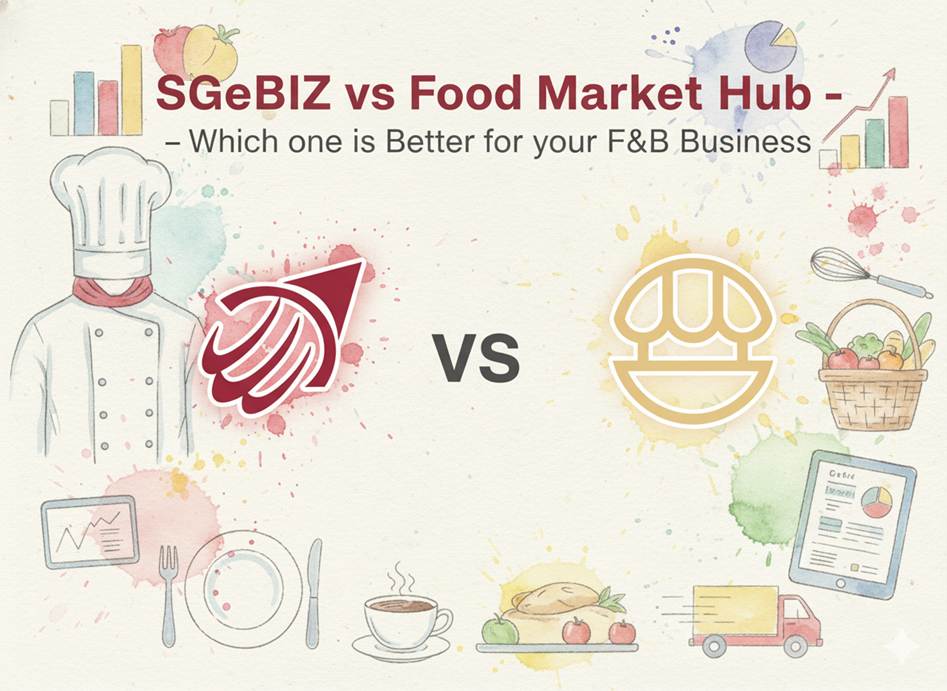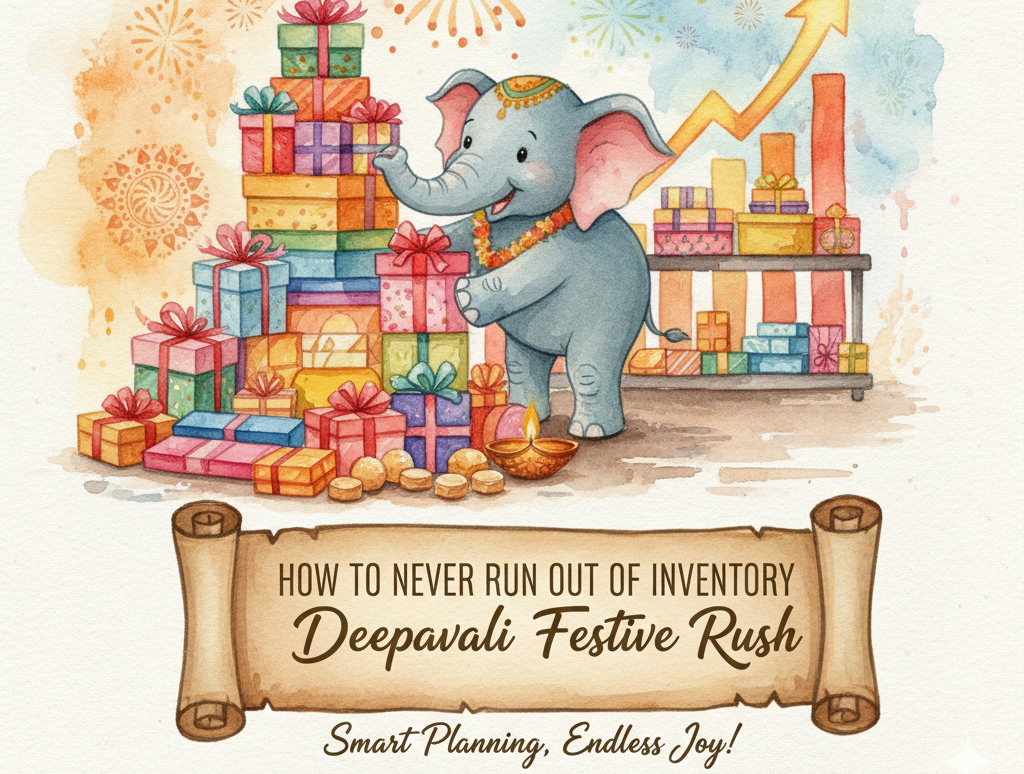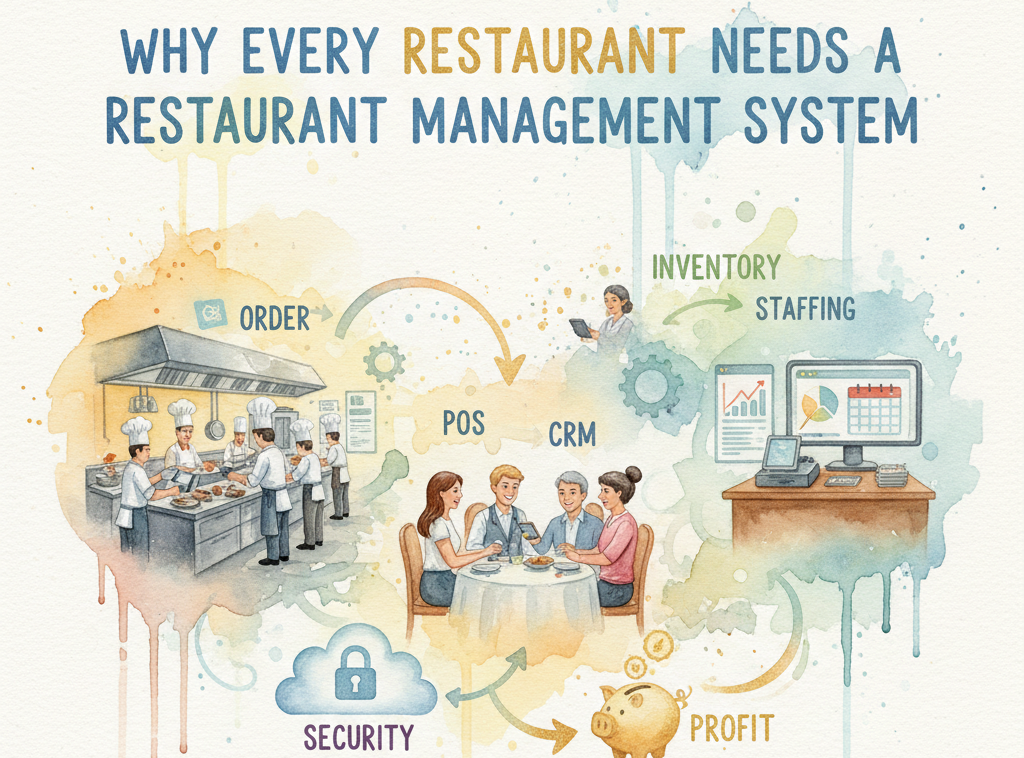ERP System V/s Restaurant Procurement Management System (Detailed Guide)

If you manage a food business, you know how complex it can be to handle inventory, track costs, and ensure smooth operations. Many people assume that an ERP (Enterprise Resource Planning) system is the best solution for all business needs. But here’s the truth: most ERP software is built for general businesses, not specifically for the food and beverage industry.
A standard ERP system might help with accounting or HR, but it won’t understand your unique challenges, like managing perishable stock, tracking ingredient costs, or dealing with multiple suppliers. A restaurant procurement management system like Food Market Hub comes in here. It’s designed just for you, making operations smoother and more efficient.
Let’s break down why a specialized system works better than a generic ERP.

What is an ERP System?
An ERP system (Enterprise Resource Planning) is a software that helps businesses manage different operations like finance, inventory, and human resources. Many industries use it because it brings everything under one roof. But here’s the catch—most ERP systems are not built with restaurants in mind.
If you try to use a general ERP software, you’ll spend a lot of time customizing it. Even then, it might not fully support things like recipe costing, supplier negotiations, or real-time stock alerts. A study by Gartner found that nearly 55% of ERP implementations fail because businesses choose systems that don’t fit their needs.
Why a Generic ERP Doesn’t Work for You
A standard ERP system might seem like a good solution at first glance, but when you dig deeper, you’ll realize it often creates more challenges than it solves. Here’s why a one-size-fits-all approach doesn’t work for food businesses.
It Doesn’t Understand Food Costs
Running a food business means dealing with constantly changing ingredient prices, perishable stock, and supplier fluctuations. A generic ERP software isn’t designed to handle these variables. For example, if the price of chicken increases, a standard ERP system won’t automatically update your recipe costs. You’ll have to manually adjust each dish’s pricing, which is time-consuming and prone to errors. Without real-time cost tracking, you might end up losing money without even realizing it.
It Lacks Restaurant-Specific Features
Most ERP systems are built for general business operations, not the unique needs of a food business. They often miss critical features like automated purchase orders when stock runs low. This means you might run out of key ingredients during peak hours, leading to unhappy customers.
Another missing feature is seamless integration with your POS system. Without this, you can’t easily track which dishes are selling the most or how much inventory you’re using. You also won’t get supplier price comparisons, making it harder to negotiate better deals. These gaps force you to use multiple tools, complicating your workflow instead of simplifying it.

It’s Hard to Adapt
If you’re not tech-savvy, learning a complex ERP system can be overwhelming. Many systems require extensive training, and even after that, your team might struggle to use them efficiently. This leads to frustration and wasted time.
A restaurant procurement management system, on the other hand, is designed with your needs in mind. It’s intuitive and built specifically for food businesses, so your team can start using it with minimal training. You won’t have to waste time figuring out unnecessary features that don’t apply to you.
A generic ERP might promise efficiency, but in reality, it often adds unnecessary complexity. A specialized system ensures you get exactly what you need, without the hassle.
How a Restaurant Procurement Management System Helps
A generic ERP system tries to be everything for every business, but a specialized restaurant procurement management system like Food Market Hub is designed specifically for the unique challenges of food businesses. Here’s exactly how it simplifies your operations and helps you run a more efficient, cost-effective business.
Simplified Ordering from Suppliers
Managing multiple suppliers is one of the biggest headaches in the food industry. With a traditional system, you might be juggling phone calls, emails, and spreadsheets just to place orders. A restaurant procurement management system centralizes everything in one platform.
You can order all your ingredients from different suppliers without switching between apps or making endless phone calls. Even if some of your suppliers aren’t on the system, you can still input orders manually while keeping everything organized in one place. This eliminates the risk of missed orders or duplicate purchases, saving you time and reducing errors.
Smart Stock Alerts
Running out of essential ingredients during peak hours can ruin your service and frustrate customers. A generic ERP system might track inventory, but it won’t necessarily alert you before you run out of stock.
A restaurant procurement system monitors your inventory in real time and sends automatic alerts when stock levels dip below a set threshold. This means you can reorder ingredients before they run out, avoiding last-minute rushes or menu substitutions. Some systems even suggest optimal order quantities based on your usage patterns, helping you maintain just the right amount of stock—no excess, no shortages.
Better Cost Control
Food costs can make or break your profitability, but keeping track of fluctuating prices and supplier deals manually is nearly impossible. A restaurant procurement system gives you real-time visibility into your expenses.
You can see exactly how much you’re spending on each ingredient, track price changes from different suppliers, and compare costs over time. This data helps you negotiate better deals and switch suppliers when necessary. The system also helps you monitor waste, so you can identify where you’re losing money, whether it’s from over-ordering, spoilage, or inefficient prep.
Seamless Growth
If you’re planning to expand, a generic ERP system might not keep up. Many businesses outgrow their software and face costly, time-consuming migrations to new systems.
A restaurant procurement management system is built to scale with you. Whether you’re adding a second location or expanding to multiple outlets, the system adapts without requiring a complete overhaul. You can manage inventory, orders, and costs across all locations from a single dashboard, ensuring consistency and efficiency as you grow.
Unlike a one-size-fits-all ERP, a specialized system evolves with your business, so you never have to worry about outgrowing your tools.
Integration with Your Existing Tools
A major drawback of generic ERP software is that it often doesn’t work well with the tools you already use, like your POS system or accounting software. A restaurant procurement system is designed to integrate seamlessly with these platforms.
For example, it can sync with your POS to track which dishes sell the most and adjust purchasing accordingly. It can also connect with accounting software to automate expense tracking and financial reporting. This eliminates manual data entry and reduces errors, giving you a more accurate picture of your business.

Saves Time on Manual Tasks
One of the biggest advantages of a specialized system is automation. Instead of spending hours on manual tasks like updating spreadsheets, calling suppliers, or calculating food costs, the system does it for you.
Automated purchase orders, real-time inventory tracking, and instant cost reports free up your time so you can focus on what matters—running your business and keeping customers happy.
Reduces Human Error
Mistakes in ordering or inventory tracking can be costly. A misplaced decimal point in a spreadsheet or a forgotten phone order can lead to overstocking, shortages, or unexpected expenses.
A restaurant procurement system minimizes these risks by automating calculations and keeping all your data in one place. Orders are tracked digitally, inventory updates in real time, and costs are calculated automatically, reducing the chance of costly errors.
Improves Supplier Relationships
Managing supplier relationships is easier when you have clear, organized records of orders, deliveries, and pricing. A restaurant procurement system keeps all this information in one place, making it easy to track performance, compare prices, and hold suppliers accountable for late deliveries or quality issues.
You can also generate reports to analyze which suppliers give you the best prices or the most reliable service, helping you make informed decisions about where to source your ingredients.
Provides Actionable Insights
A generic ERP system might give you data, but it won’t always help you understand what to do with it. A restaurant procurement system turns raw numbers into actionable insights.
You can see trends in ingredient costs, identify seasonal fluctuations, and track which menu items are the most (or least) profitable. This helps you make smarter decisions about pricing, menu planning, and purchasing, ultimately improving your bottom line.
Enhances Team Collaboration
In a busy kitchen, communication between chefs, managers, and purchasers is critical. A restaurant procurement system keeps everyone on the same page by providing a centralized platform for orders, inventory, and cost tracking.
Chefs can check stock levels before planning menus, managers can approve purchases with a few clicks, and purchasers can ensure orders are placed on time—all without miscommunication or delays.
Future-Proof Your Business
Technology in the food industry is constantly evolving, and a system designed specifically for restaurants is more likely to keep up with new trends and innovations. Whether it’s new integrations, advanced analytics, or mobile accessibility, a specialized system grows with the industry, so you’re always equipped with the latest tools to stay ahead.
A generic ERP system might seem like a safe choice, but it often becomes outdated or inflexible over time. A restaurant procurement management system ensures you’re always using the best tools for your business, both now and in the future.

The Cost Difference: ERP vs. Specialized Systems
Many people worry about ERP pricing, thinking a big system means better value. But the truth is, a general ERP can cost RM 50,000 to RM 200,000 upfront, plus yearly maintenance fees.
A restaurant-focused system like Food Market Hub is more affordable because it cuts out unnecessary features. You pay for what you actually need, without extra customization costs.
A generic ERP system might seem like a one-size-fits-all solution, but it often creates more work for you. A restaurant procurement management system is designed to handle your daily challenges—saving time, reducing costs, and helping you grow.
With Food Market Hub, you get a system that understands your business, scales with you, and makes operations smoother. Why settle for a complicated ERP when you can have a tool built just for you?
Choosing the right system can transform how you manage your food business. With Food Market Hub, you get a solution that’s built for you—simple, efficient, and effective. Why complicate things with a generic ERP when you can have a tool that truly understands your needs?










